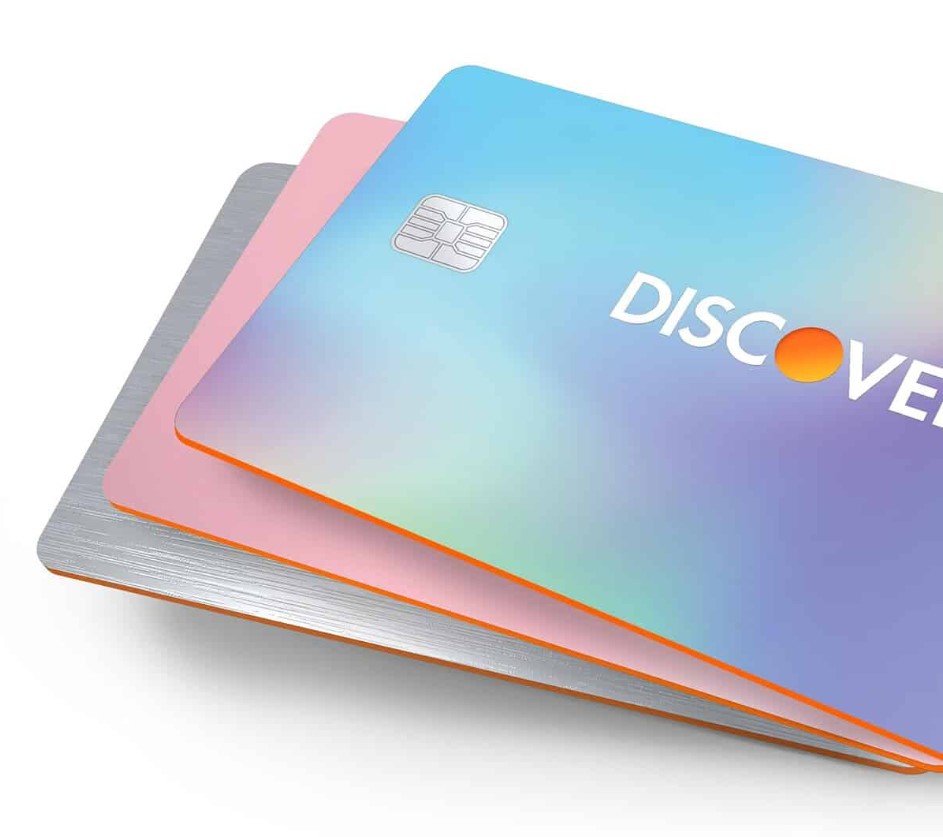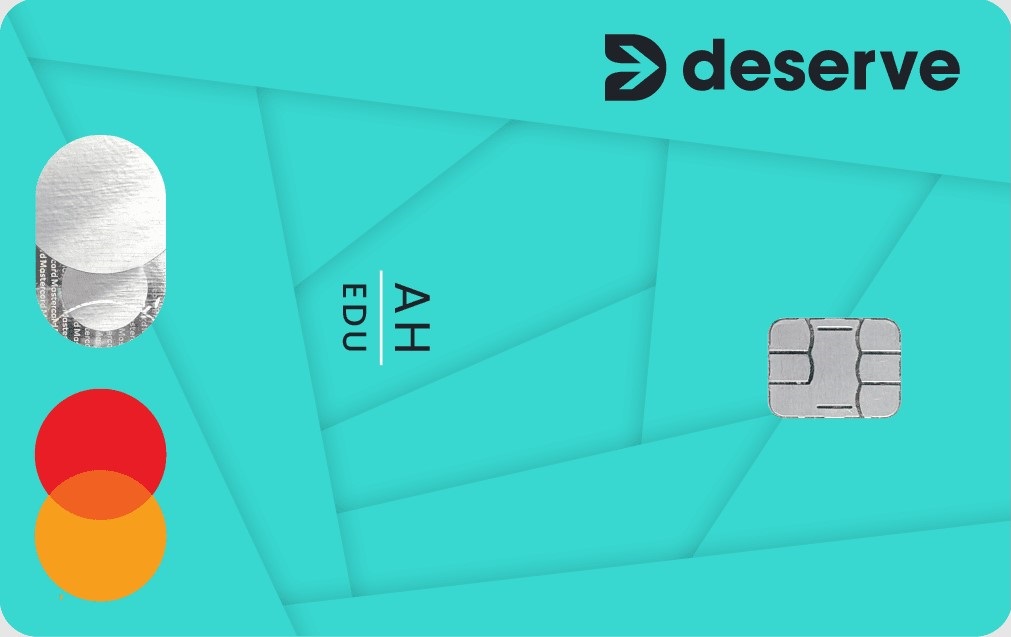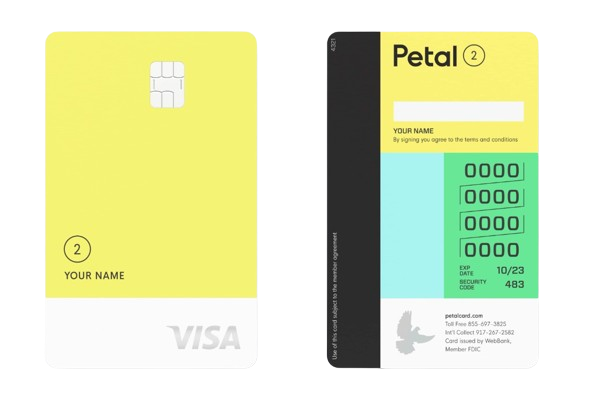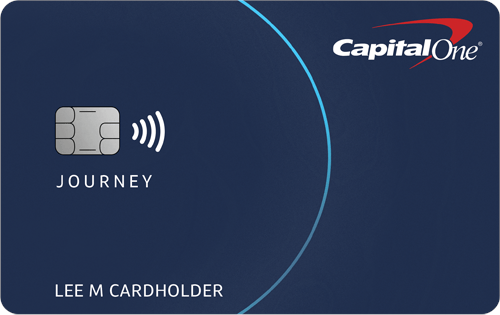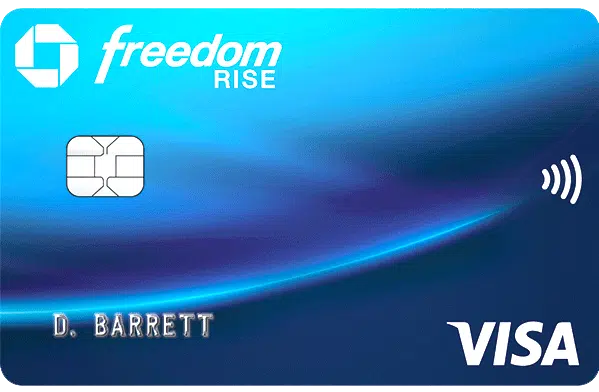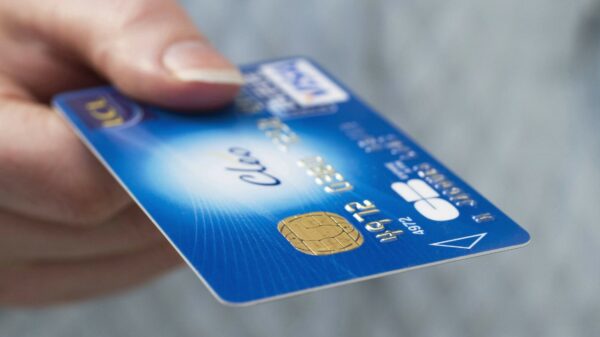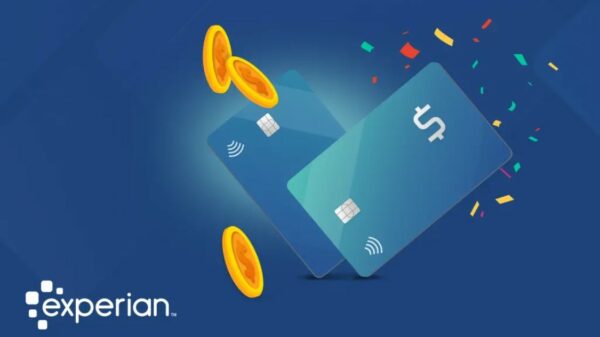Student credit cards for international students in the U.S. can be a useful tool for building credit and managing finances while studying.
The easiest way is to apply for a credit card in your home country before your trip, as international banks can provide VISA, MasterCard, and AMEX cards that can be used in the U.S.
But using international credit cards can come with foreign transactions, and fees, making a local credit card a better option – especially if you also want to start building credit.
Below is our list of the best international student credit card options, along with their fees, benefits, and specific eligibility requirements.
Best international student credit cards
1. Deserve® EDU Mastercard for Students
Why we chose it: Best for students with no credit history
The Deserve® EDU Mastercard is a good option for international students as you don’t need an SSN or a good credit score to apply. It has some great card perks, in addition to its low credit requirements.
Some benefits include a year of Amazon Prime Student membership when you spend $500 in the first three billing cycles. There is also a 1% cash back on all purchases. The Deserve® EDU Mastercard has a $0 annual fee and a 22.99% variable APR.
Benefits and rewards:
- 1% cash back on all purchases
- One year Amazon Prime Student membership when you spend $500 in the first three billing cycles
Pros
- No annual fee
- No social security number is required to apply
- No cosigner or security deposit required
- Cell phone protection up to $600
Cons
- High APR rates
- Late payment fees of up to $25
Eligibility requirements:
- No minimum credit score
- Must be at least 18 years old
- Must be enrolled in a U.S.-based college or university
- Can apply with a passport
2. Capital One Quicksilver Student Cash Rewards credit card
Why we chose it: Best for cashback rewards
The Bank of America® Unlimited Cash Rewards is a good option for students who don’t have an excellent credit score. The card has no annual fee, no foreign transaction fee, and comes with several rewards, including an unlimited 1.5% cash back on all purchases.
You also get $50 when you spend $100 within the first three months and you get 10% cash back on purchases from Uber and Uber Eats. If you refer family and friends who get approved for a card, you can get up to $500 a year.
You can use Capital One’s online pre-approval tool to see if you qualify for a card within minutes and this only requires a soft credit check.
Benefits and rewards:
Cash back:
- Earn unlimited 1.5% cash back on all purchases.
- Earn 10% cash back on Uber and Uber Eats purchases.
Early spend bonus:
- Earn $50 when you spend $100 in the first three months.
Referral bonus:
- Earn up to $500 a year by referring family and friends.
Pros
- 1.5% cash back on every purchase
- No annual fee
- No foreign transaction fees
- Rewards don’t expire
Cons
- Potential high interest rate
- Late payment fee of up to $40
Eligibility Requirements:
- Be 18 years or older
- Have a Social Security Number
- Have a steady income
- Be enrolled as a student
3. Petal 2 Visa credit card
Why we chose it: Best for no fees
The Petal® 2 Visa® Credit Card is a great option for starters and international students without an SSN. The card comes with up to 1.5% cash back on eligible purchases and reports your payments monthly to three major credit bureaus.
Card rates start at 17.99% variable APR and there is no annual fee. There are no foreign transaction fees although the card doesn’t allow for balance transfers.
Benefits and rewards:
- Up to 1.5% cash back on eligible purchases after making 12 on-time monthly payments.
- 1% cash back on eligible purchases right away
- 2% – 10% cash back at select merchants
Pros
- No membership fees
- No foreign transaction fees
- Doesn’t require a security deposit
- Earn up to 1.5% cash back on eligible purchases
Cons
- No balance transfers allowed
Eligibility Requirements:
- Must be 18 years or older
- Can apply with an ITIN
- Sufficient income to afford bill payments
4. Capital One Journey Student credit card
Why we chose it: Best for students without an SSN
The Capital One Journey Student credit card is an option for international students without an SSN and the card comes with 1% cash back on all purchases. There is no annual fee and no foreign transaction fee, but the card comes with a high APR of 29.99%.
You can choose a monthly due date that works for you and earn up to $500 annually by referring friends and family when they’re approved for a Capital One credit card.
You can be automatically considered for a credit limit increase on your card after six months of on-time payments so this is a good card if you want to build your credit.
Benefits and rewards:
- 1% cash back on all purchases
- 5% cash back on hotels and rental cars booked through Capital One Travel
Pros
- No annual fee
- No foreign transaction fees
Cons
- 3% cash advance fee
Eligibility Requirements:
- Must be at least 18 years old
- Can apply with an ITIN
5. Chase Freedom Rise™ credit card
Why we chose it: Best for rewards without an annual fee
The Chase Freedom Rise™ credit card is a great option for international students as you don’t require an SSN or a security deposit. The card has no annual fee and you can qualify with limited or no credit history.
After six months, you’ll be evaluated for a credit line increase and earn 1.5% cash back on all your purchases. Cashback rewards do not expire.
The card comes with an interest rate of 26.74 APR and there is a 5% cash advance fee. There is also a late fee of up to $40 and a 3% foreign transaction fee.
Benefits and rewards:
- Earn 1.5% cash back on all purchases.
- Cashback rewards do not expire as long as you keep your account open.
- Earn a $25 statement credit when signing up for AutoPay within the first 3 months after opening your account.
Pros
- Don’t need an SSN to apply
- No credit history needed
- Doesn’t require a security deposit
- Offers cashback rewards on all purchases
- Trip cancellation insurance
Cons
- High APR
- Foreign transaction fee
- Balance transfer fee of up to 5%
Eligibility Requirements:
- Must be at least 18 years old
- Can apply with an ITIN
Can international students get a credit card?
International students can get a credit card in the U.S., but there may be specific considerations:
- Many credit card issuers require an SSN, which may not be available to all international students.
- Some cards, like the Deserve® Edu Mastercard for Students, are designed specifically for international students and do not require an SSN.
- In the U.S., credit decisions are often based on a person’s credit history, which international students might not have when they first arrived.
- Some banks and credit unions may work with international students by using other factors like academic records or bank statements.
If unsecured cards are not an option, international students might consider secured credit cards. These require a security deposit, which reduces the risk for the issuer. Secured credit cards can be a good starting point for building credit, but they usually come with fewer rewards and benefits.
How to choose a credit card as an international student
Choosing a credit card as an international student in the U.S. is a decision that requires careful consideration of various factors. Here’s a step-by-step guide to help you:
Understand your needs and goals
Identify what you want from the card: Is it for building credit, earning rewards, or managing everyday expenses? Knowing your specific needs is crucial in finding a card that aligns with your financial goals.
Check eligibility requirements
Look for cards that accept applications without a Social Security Number (SSN) or that are specifically tailored to international students. This step is vital, as not all cards will be accessible without an SSN or U.S. credit history.
Consider fees and costs
Evaluate annual fees, foreign transaction fees, and interest rates. Choosing a card with no annual fee and no foreign transaction fees is generally a wise decision for international students to keep costs low.
Examine rewards and benefits
Consider rewards that align with your spending habits, such as cash back on groceries or travel rewards. Look for additional benefits like free credit score access or student-specific perks.
Evaluate credit building tools
Look for cards that offer tools to help you understand and build your credit. These tools can be highly beneficial for someone new to the U.S. credit system.
Consider secured credit cards
If unsecured options are limited, explore secured cards that require a deposit but help build credit. While not as attractive as unsecured cards, they can be a good starting point for credit building.
Read reviews and seek guidance
Look for online reviews and ratings, or consult with your university’s financial services department. Peer reviews and professional guidance can provide insights that might not be apparent from promotional materials.
Understand the terms and conditions
Thoroughly read and understand the terms, including interest rates, penalties, and how rewards are earned and redeemed. This step is essential to avoid unexpected surprises or fees.
Consider alternative options
If a credit card is not feasible, explore other options like debit or prepaid cards.
Other ways to build your credit history
Building credit history in the U.S. is important for anyone planning to stay in the country long-term, including international students. If obtaining a credit card is not feasible, there are still other methods to establish and build credit. Here are some alternatives:
Secured credit cards
A secured credit card requires a cash deposit as collateral and is generally easier to obtain. This is often an excellent starting point for building credit, even if it may not offer as many benefits as an unsecured card.
Become an authorized user
If you have a family member or close friend with established credit in the U.S., you could become an authorized user on their account. While this can be a viable way to build credit, it requires a high degree of trust between the parties, as the primary account holder’s credit behavior will affect your credit history as well.
Apply for a loan with a co-signer
A personal loan with a co-signer who has good credit may be an option. This method requires careful planning, as taking out a loan should align with your financial goals and ability to repay.
Utilize rent reporting services
Some services will report your regular rent payments to credit bureaus, contributing to your credit history. This can be a natural way to build credit through an existing financial responsibility, though not all credit bureaus may consider rent payments.
Open a joint account
Sharing a bank account with a U.S. citizen or permanent resident can sometimes help establish a credit presence. Similar to becoming an authorized user on a credit card, this method requires trust and shared responsibility.
Use a credit-builder loan
Some financial institutions offer credit-builder loans specifically designed to help individuals establish credit. This is a targeted way to build credit but must align with your broader financial strategy.
Build a relationship with a bank or credit union
Establishing a relationship with a financial institution by maintaining a checking or savings account can sometimes lead to credit opportunities. Building a relationship with a local bank or credit union can create opportunities for credit that you might not find elsewhere.
Consider reporting utility payments
Some utility providers might report regular, on-time payments to credit bureaus. This option can vary widely by provider and location, but it’s worth exploring as it leverages regular monthly expenses.
Building credit and managing financial products such as credit cards and bank accounts should always be done with consideration of one’s individual financial situation and in consultation with a financial advisor if needed. Responsible management of these financial tools is key to achieving financial success in the U.S.
FAQs
Can you open a credit card in the U.S. if you’re an international student?
Yes, international students can open a credit card in the U.S., although it may be more challenging. Some cards are specifically designed for international students or do not require a Social Security Number (SSN). Options like secured credit cards or finding a co-signer may also be explored.
Can you open a bank account as a foreign student?
Yes, foreign students can open a bank account in the U.S. Generally, you’ll need your passport, student visa, I-20 or DS-2019 form, and proof of address. Some banks might have partnerships with educational institutions, making the process even more straightforward.
How can international students build credit fast?
Building credit takes time, but international students can expedite the process by obtaining a secured or student credit card, becoming an authorized user on a family member’s card, or using a credit-builder loan. Paying bills on time, keeping credit utilization low, and following responsible financial practices are essential to building credit efficiently.

